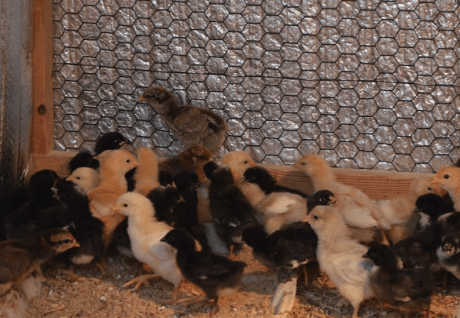Raising Poultry Increasingly a “Raw Deal” for Alabama Farmers
In the U.S., poultry production has risen leaps and bounds over the past several decades. It’s now an almost $50 billion industry. Alabama is located in the heart of what’s considered the agricultural “chicken belt” of America. In 2013, Alabama farms produced roughly 1 billion chickens. While that may make it sound like the state’s poultry farming economy is healthy, farmers tell a different story. A mere two companies control about 40 percent of the U.S. chicken market. Additionally, every one of Alabama’s chickens is produced by contract famers, and some of these farmers tell the weekly newspaper WELD that they’re getting a raw deal.
“A generation ago, before the practice of contract farming took over, the majority of farmers in Alabama (and elsewhere) owned their own chickens,” writes Cody Owens in this week’s WELD. “Now, there is not a single privately owned chicken farm in the state. It is not uncommon for farmers to take out $1 million loans in order to build houses and obtain a contract with a major company like Tyson or Pilgrim that control a large portion of the market.”
For more, WBHM’s Rachel Osier Lindley spoke with Nick Patterson, editor of WELD. Patterson joins WBHM most Thursdays during All Things Considered.
Parents, are you sure your kid’s car seat is installed right? Here’s how to know
In this visual guide, certified car seat experts walk through common installation mistakes and how to fix them. Learn what a secure car seat base and a tightly fastened tether look like and more.
Trump announces ‘major combat operations’ in Iran
Israel and the U.S. have launched strikes against Iran, with explosions reported in Tehran and air raid sirens sounding across Israel.
Trump says he is ‘not happy’ with the Iran nuclear talks but indicates he’ll give them more time
U.S. President Donald Trump said Friday he's "not happy" with the latest talks over Iran's nuclear program but indicated he would give negotiators more time to reach a deal to avert another war in the Middle East.
Bill Clinton says he ‘did nothing wrong’ with Epstein as he faced grilling over their relationship
Former President Bill Clinton told members of Congress on Friday that he "did nothing wrong" in his relationship with Jeffrey Epstein and saw no signs of Epstein's sexual abuse as he faced hours of grilling from lawmakers over his connections to the disgraced financier from more than two decades ago.
How the federal government is painting immigrants as criminals on social media
Experts say this kind of media campaign is unprecedented and paints a distorted picture of immigrants and crime
Pentagon puts Scouts ‘on notice’ over DEI and girl-centered policies
After threatening to sever ties with the organization formerly known as the Boy Scouts, Defense Secretary Hegseth announced a 6-month reprieve








